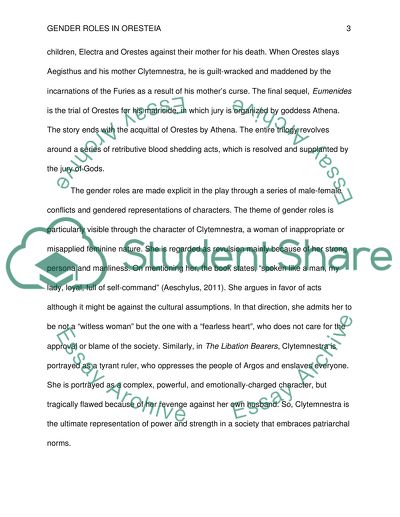Cite this document
(“Gender roles in the Oresteia (Agamemnon,Libation Bearers ,The Term Paper”, n.d.)
Retrieved from https://studentshare.org/literature/1693736-gender-roles-in-the-oresteia-agamemnonlibation-bearers-the-eumenides
Retrieved from https://studentshare.org/literature/1693736-gender-roles-in-the-oresteia-agamemnonlibation-bearers-the-eumenides
(Gender Roles in the Oresteia (Agamemnon,Libation Bearers ,The Term Paper)
https://studentshare.org/literature/1693736-gender-roles-in-the-oresteia-agamemnonlibation-bearers-the-eumenides.
https://studentshare.org/literature/1693736-gender-roles-in-the-oresteia-agamemnonlibation-bearers-the-eumenides.
“Gender Roles in the Oresteia (Agamemnon,Libation Bearers ,The Term Paper”, n.d. https://studentshare.org/literature/1693736-gender-roles-in-the-oresteia-agamemnonlibation-bearers-the-eumenides.


